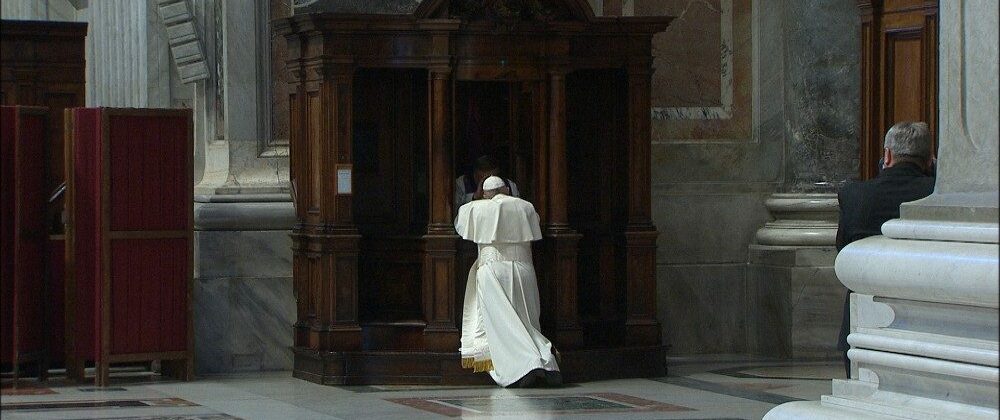
This expression of Pope Francis has been pronounced on March 12, during the meeting with the members of the Apostolic Penitentiary, the oldest Dicastery of the Roman Curia, today presided over by Card. Mauro Piacenza, which represents the Holy See’s first tribunal, the “tribunal of Mercy,” as the reigning Pontiff called it.
by Marco Invernizzi
On March 12, the Pope recalled three expressions that explain the meaning of the Sacrament of Confession or Reconciliation: “to abandon oneself to Love”; “to let oneself be transformed by Love”; “to correspond to Love.”
The speech is short and I hope everyone will read it (available for consultation on to the Holy See’s website, vatican.va). You will find Pope Francis’ beautiful words about this sacrament that is so important, especially today, that confessionals are not very frequented.
Confession is a manifestation of truth, about ourselves, about our relationship with God and our relationship with our brothers and sisters. It is a fundamental step in one’s personal life, because it marks the will to convert, to abandon sin and to go in the direction the Lord wants, who offers us all the means to overcome difficulties and eliminate obstacles.
Nevertheless, confessing also has a social dimension. After the speech of the Holy Father, I reread the 1984 Apostolic Exhortation “Reconciliatio et Paenitentiae”, written by St. John Paul II after a Synod dedicated to that theme. This document seeks to identify the way to overcome the many lacerations that make contemporary life a shattered world, a world divided between ideological factions and different groups, a division that wounds the Church as well.
The world of that time was different from the contemporary one. It was still the era of ideologies, although already in a phase of decadence, which divided the world into a main opposition between the countries subjugated by real socialism and those of the so-called free world. Today, the world knows a different division, but even more extensive, being marked by a relativism that replaces the ideologies with an increasingly radical individualism, made even more corrosive by media actually available to man, which delude himself to be important because when he writes something “extreme” and unlikely on social media, he feels gratified by a high number of likes.
But who is responsible for having generated this shattered world, asks St. John Paul II? “As much as these lacerations already appear impressive at first glance” – writes St. John Paul – “only by looking deeply we can identify their root: this is found in a wound in the depths of man”. Christians call this wound sin, and the sacrament of Reconciliation is an important means of combating it, but non-Christians also have before their eyes the world of today that is increasingly shattered and marked by so many injustices: this observation could also give rise in them to a decisive question for the future of their lives.
“What to do?” asks Saint John Paul II. If one observes carefully the shattered world (and today we could confirm what the Polish Pope wrote then, indeed I would say that the wound has widened), one “grasps an unmistakable desire, on the part of men of good will and of true Christians, to recompose the fractures, to heal the lacerations, to establish, at all levels, an essential unity. This desire involves in many a real nostalgia for reconciliation, even if this word is not used”.
We should then use this beautiful expression, “nostalgia for reconciliation”. A nostalgia that should drive us to mend wounded relationships, to overcome ideological divisions in the name of a Truth that is greater than each one of us, to restore importance, including in society, to themes such as “truth” and “lies”, which presuppose the existence of errors and of mercy, which forgives and saves. Recognizing this in the secret of a confessional is the first step towards a reconciled world, which comes closer when a man, in the secret of Confession, searches for the truth about himself, about his relationship with God, with his neighbor and with Creation, repents of his sins and entrusts himself to the Love of the Man who died to give him eternal salvation and happiness.
Giovedì, 18 marzo 2021
